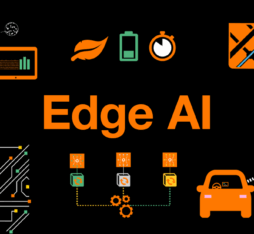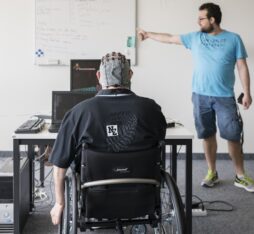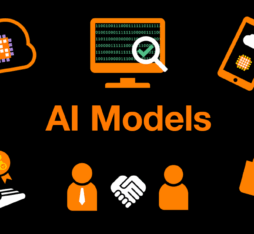• We talk to Jean-Emmanuel Bibault, a professor of radiation oncology and the founder of the French start-up Jaide, which uses generative AI to improve the monitoring of cancer patients’ symptoms.
• Jaide offers a system to automate routine consultations, which generates clear and precise information for doctors while allowing them more time to focus on treatments and therapeutic solutions.
AI is not about to replace doctors, but it can help them to provide improved care for patients whose symptoms are not always accurately diagnosed. “I have been working with my partner on the idea of automating routine consultations since April 2023, notably regular weekly and tri-weekly consultations required for the treatment of certain cancers. According to the scientific literature on the subject, a significant proportion of these consultations are not properly carried out,” explains Doctor Jean-Emmanuel Bibault. In a context where 20% of symptoms are underreported, the new tool developed by the French start-up, which launched in June 2024, could have a considerable impact. “Underreporting is linked to a 35% decrease in overall survival, so this is far from being a trivial problem.” Adopting a patient-reported outcomes approach, Jaide requires patients themselves to supply data on their symptoms to an AI web application, which then provides doctors with a natural language summary of their responses. In an initial study, cancer treatment reports generated by the system were well-rated for a broad range of criteria including accuracy and thoroughness. And the radiation oncologist believes that patients will soon use the tool to improve symptom monitoring and preliminary diagnosis for many other illnesses.
Our aim is to take charge of all kinds of medical consultations, which will give physicians more time to focus on treatments and therapies
Targeting all kinds of medical consultations
The goal of Jaide is to harness the power of generative AI to write short and highly precise medical reports that provide doctors with essential information on the condition of their patients. “In late 2023, we tested a GPT4-based solution for prostate cancer monitoring, and our findings were subsequently published in a leading cancer journal. My partner, David JH Wu, also tested the solution at the Brazilian National Cancer Institute with whom we will soon be starting a clinical trial. In the wake of these results, we decided to launch the company.” As it stands, the start-up is focused on cancer monitoring, but further development is in the works. “Our ultimate aim is for the Jaide to take charge of all kinds of medical consultations, which will give physicians more time to focus on treatments and therapies since they will already have a lot of information on patients before they arrive in the consulting room.” Written data on symptoms can now be submitted into the application’s patient interface, which will soon accept spoken accounts that will be automatically transcribed by AI. “We’re also planning to raise funds to develop a doctors’ interface to enable physicians to monitor patients’ progress, and a further patient module to record medical histories and data on allergies, etc. In other words, the goal is to do everything that is currently done in pre-consultation.” Finally, the entrepreneur wants Jaide to provide support for clinical decisions with treatment recommendations that take into account information supplied by patients. However, features of this kind will first need to be validated by officially supervised clinical trials. “I’m hoping to conduct the French clinical trial in the Paris hospital where I work,” explains Bibault.
Similar tools for tropical diseases and endometriosis
A number of other projects to build AI-based tools that collect data from patients to help ensure accurate diagnoses are already underway. At Columbia University (New York), researchers have developed a mobile app called Phendo, which tracks symptoms of endometriosis, a disease that affects 10% of women of reproductive age worldwide. The new tool, which makes use of AI to reduce the time required to diagnose the pathology, can also help practitioners to understand what works and what doesn’t work in patient management. In Spain, the Hospital Clínic de Barcelona in partnership with Mediktor has developed a dedicated medical chatbot to pre-diagnose tropical diseases like dengue fever, yellow fever, malaria and Chagas disease. The AI system delivers a pre-diagnosis based on responses to specific questions, which allow for a precise evaluation of patients’ symptoms. However, software that is used to treat individuals, and not just for research, is subject to medical device regulations, which means that Jaide and all these new tools will need to be officially evaluated in clinical trials. In Europe, this process, which enables developers to obtain a CE marking, notably ensures that digital systems comply with rules on the management of confidential patient data.
 Jean-Emmanuel Bibault
Jean-Emmanuel Bibault











